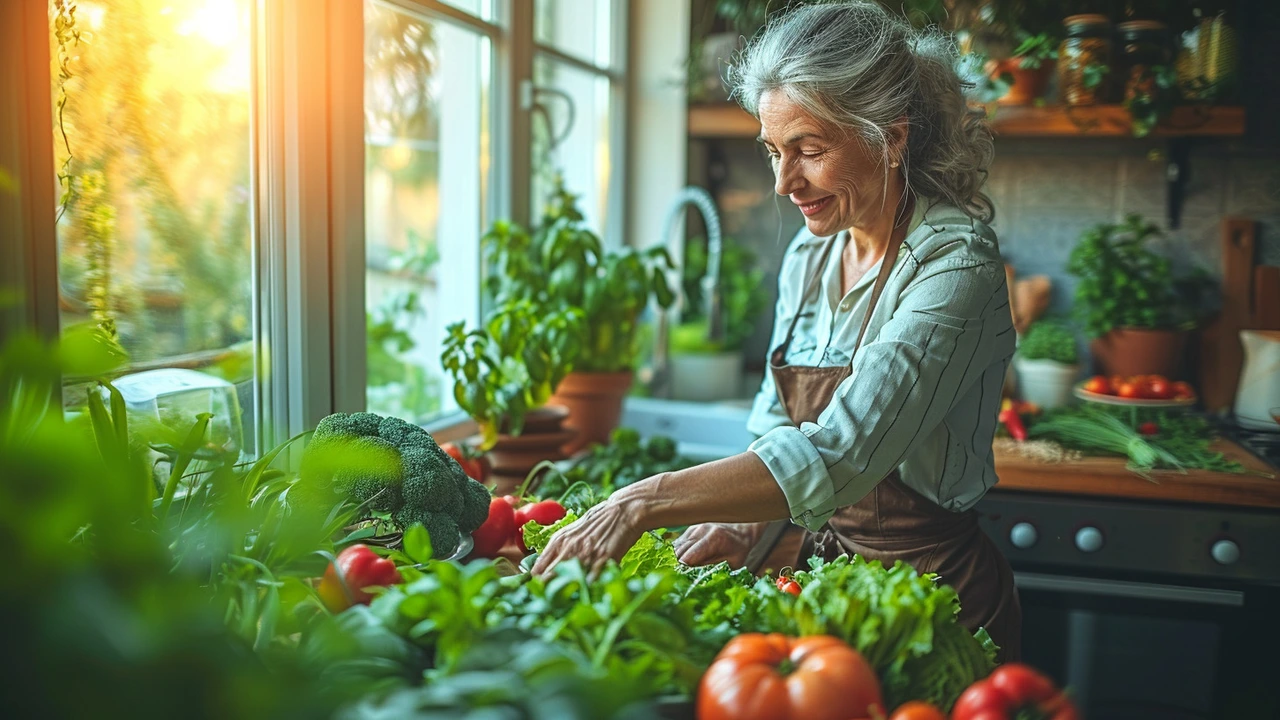Introduction to Skin Health and Nutrition
When we talk about skin health, often the conversation veers towards topical treatments and elaborate skincare routines. However, what if I told you that the secret to glowing, vibrant skin lies not in what you put on it, but what you put in your body? The relationship between a healthy diet and the condition of our skin is intricate and powerful. Let me guide you through the surprising ways a balanced and nutrient-rich diet can transform your skin, debunk some myths, and offer actionable advice on how to nourish your body for an enviable glow.
The Science Connecting Diet to Skin Condition
The skin, our body's largest organ, reflects our overall health in many ways. Scientists and nutritionists have long studied the effects of diet on skin condition and the consensus is clear - what we eat directly affects the health and appearance of our skin. Nutrients like vitamins A, C, E, and the mineral zinc, are pivotal in skin repair, moisture retention, and protection against environmental damage. Omega-3 fatty acids, found in fish and flaxseed, are crucial for maintaining skin’s lipid barrier, essential in keeping the skin hydrated and plump.
"A balanced diet rich in antioxidants and healthy fats can significantly improve skin health," - The American Academy of Dermatology.
Key Nutrients for Radiant Skin
Let's dive deeper into the specifics. Vitamin C, a strong antioxidant found abundantly in citrus fruits and leafy greens, aids in collagen production - a protein that gives skin its firmness and elasticity. Vitamin E, present in nuts and seeds, works alongside Vitamin C to protect skin cells from oxidative damage. Beta-carotene, converted into vitamin A in the body, is another skin-loving nutrient that promotes skin repair and may protect against sun damage. It's not just about what you eat, but also what you drink. Hydration plays a crucial role in skin health, with water being the ultimate elixir for maintaining moisture levels and flushing out toxins.
Importance of Gut Health for your Complexion
Your gut health has a profound impact on your skin. An unhealthy gut can lead to an overproduction of certain bad bacteria which can manifest on your skin as acne, eczema, or psoriasis. Incorporating probiotic-rich foods like yogurt, kefir, and fermented vegetables can help balance the gut flora, thereby improving your skin’s appearance. A fascinating study published in the Journal of Dermatology found that participants with acne showed improvement after consuming probiotic supplements for 12 weeks.
How Hydration Affects Skin Health
It can't be overstated how essential water is for maintaining skin elasticity and preventing dryness and flaking. Dehydration can make your skin look more wrinkled and aged than it is. But, it’s not just about guzzling water – consuming fruits and vegetables with high water content, like cucumbers and watermelons, can also keep your hydration levels up. Furthermore, omega-3 supplements have been shown to improve skin hydration and reduce inflammation according to a study in the Journal of Clinical Dermatology.
Combating Common Skin Issues Through Diet
Acne, wrinkles, and sun damage - our skin battles many enemies. Fortunately, our diet can be our greatest ally in these fights. Foods high in glycemic index can trigger hormonal fluctuations leading to acne; replacing them with low-GI alternatives like whole grains can mitigate breakouts. To combat premature aging, a diet rich in antioxidants can help fight free radicals - molecules that damage skin cells. Lastly, no diet can substitute sunscreen, but certain foods like tomatoes, rich in lycopene, may provide some degree of protection against UV rays.
Tips for Incorporating Skin-Boosting Foods into Your Diet
Eating for your skin doesn’t have to be a chore or mean giving up all your favorites. Simple swaps and additions can make a big difference. Include a colorful variety of fruits and vegetables in your meals to ensure you’re getting a broad spectrum of vitamins and minerals. Snack on nuts and seeds instead of processed snack foods to get a healthy dose of Vitamin E and zinc. And remember, moderation is key - balanced nutrition is about diversity, not exclusivity. Start viewing your meals as an opportunity to nourish not just your body, but your skin as well.
As someone living in Norwich with my kid, Lyle, I've seen firsthand how a mindful approach to eating doesn't just impact our health but our family's well-being. From farmer's markets to our dinner table, choosing foods that are as close to their natural state as possible has brought about noticeable changes in our skin and overall health. It's a journey of small steps, but each one leads to a visibly brighter, healthier complexion - and ultimately, a happier, healthier family.






